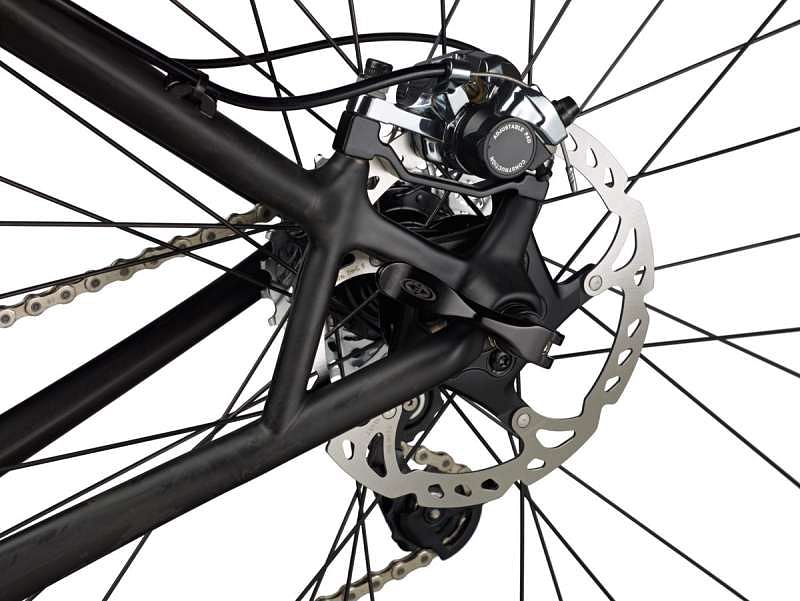
The pros and cons of disc brakes on road bikes
I first heard of disc brakes when I was growing up. Hero Honda’s CBZ went mainstream and as is typical of the auto industry, certain features get shouted off from the top of roofs. Sure, disc brakes are powerful and effective. But are they always the answer to any and every braking problem? It’s not a simple yes or no:
An almost exclusive feature to mountain terrain bikes (MTBs) until a few years ago, disc brakes crept into the cyclocross bikes (CX) and that was just a matter of time. But disc brakes have gatecrashed (#sorrynotsorry) the road bike industry in the last couple of years.
Not many technologies or innovations have caused as much intrigue and excitement in the recent past as the entry of disc brakes in the road industry has. With some camps of the pro peloton already having adopted them, the rest are waiting to see what the future holds with respect to this curious and controversial change.
Let’s look at the cons first, in no order
– Dirt getting in between the disc and brake pads is not just potential damage to the brakes, but also annoying to the rider and those around. But this problem is mainly faced by cyclocross riders on sandy courses and not necessarily road cyclists
– The brakes themselves are expensive. Manufacturers would mark-up bikes a lot more because of this, costs of production (not reaching economies of scale yet) and the novelty factor
– Rain and moisture don’t necessarily render disc brakes ineffective, but they get noisy as hell when wet
– Braking power is considerably higher than that of traditional brakes, no doubt. But, it still doesn't solve the problem of wheel locking and skidding, especially on wet roads. The limiting factor here is and will always be the friction between tires and road and not the (relatively) weak caliper brakes. If that problem has to be addresses, tire and/or road tech need to step up their game
– You can't swap wheels with friends – or your own – that don't use disc brakes. This could also be an issue with neutral support in pro races as long as the peloton uses both disc and caliper brakes
– When only some riders in the peloton use disc brakes, there is a difference in braking power. Some brake early, some brake later. Some brake softer and some harder. This sudden, irregular change of speed in the express train that is a peloton increases the risk of crashes that are already such a standard feature in every race. This would be no concern if everybody adopted disc brakes, which is likely in a couple of seasons. But, until then, we may have to see more such gory accidents. This infamous incident brought to light the fact that sharp rotors are serious hazards. With sharp steel teeth from chainrings and cassettes already posing a threat, the discs have literally doubled the risk of getting cut brutally. The UCI promptly banned them
– Some believe that disc brakes don’t serve a "need" of consumers. This is just companies trying to push a product onto pro peloton, and in turn, the consumers. Let’s face it, we cyclists do a lot of things just “because the pros do it”
– Designing road bike frames to be disc brake compatible is not easy. The forces that act on the fork and frame while braking is a completely new ball game. A lot of testing needs to be done while getting feedback from the full spectrum of riders – from pros to the weekend warriors. The position of the brake on the fork needs to be extremely precise, leaving nothing to chance. This can and should only be handled by experts. If you’re looking to buy a disc brake road bike, do it only if you trust the brand and their warranty/guarantee/return policy
Pros/Myths busted
– Almost all disc brake models are tested first hand by the pros themselves. Years of riding makes them sensitive to the smallest changes on bikes and they are generally good judges to what works and what doesn’t
– A disc brake would add considerable weight to the bike. But unless you are a pro, this shouldn’t matter.
– If we assume that all pros end up using disc brakes, the playing field is level again.
– This weight gain can be compensated for in the rims. With no need for a traditional braking surface on the rims, wheels can be made lighter, more aerodynamic and to last much longer. Expensive wheelsets can now get a longer life owing to longer rim life (the braking surface being the weak link of the life of a wheel).
– With rotating weight considerably slashed, we can see accelerations like never before
– Some people think that the disc surface could get really hot from braking when you're going downhill and under extreme heat, disc brakes do fail. But these products are failure tested before they enter the market and, in reality, nobody (except uninformed beginners) holds the brakes continuously while descending. Only downhill racers might have to do this, if anybody.
– The thru-axle. With higher braking power, new through axles have to be designed in order to add stiffness to the fork and the rear triangle of the frame. Focus have already made a stiffer axle that also makes switching wheels faster. Other companies will, soon enough, either adopt/buy this or make their own. At the moment, this axle is only a second or so faster than regular quick release-skewer mechanism
The Verdict
If you are not in the pro peloton i.e. if you are reading this, this is a no-brainer. A disc brake enhances your braking efficiency without endangering you or your rides. Getting used to the new braking power is just a matter of acclimitization. Reducing rotating weight is a major incentive you can’t hide from.
